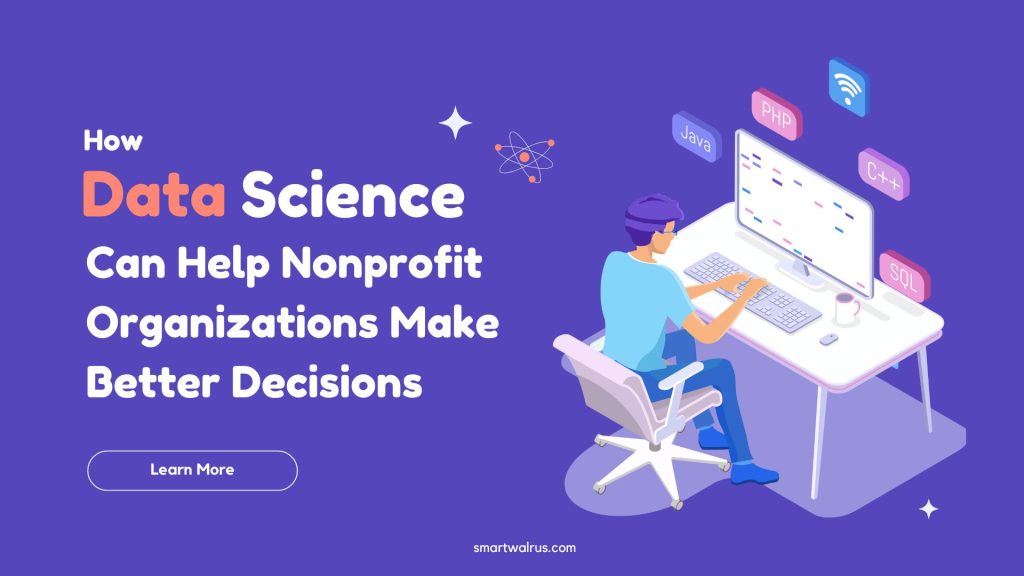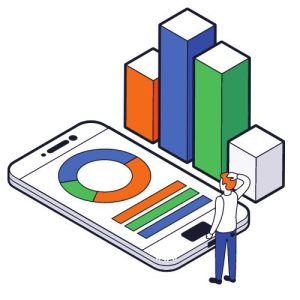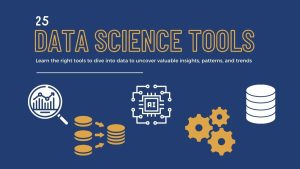How Data Science Can Help Nonprofit Organizations

Nonprofit organizations face complex challenges when it comes to decision-making and resource allocation. Every year, they must weigh the competing demands of their mission, stakeholders, and financial backers. How can they make smarter decisions that lead to stronger funding proposals?
Fortunately, there are ways non-profits can use data science to strengthen their decision-making processes and increase the effectiveness of their programs. In this article, we look at how a nonprofit organization might start using data science in its operations.
What is Data Science?

Data science is the discipline of extracting and analyzing information from data or systems to create a predictive model that can be used to make better business decisions. They are employed by many companies to provide these services. But they can also be found in non-profit organizations, government organizations, and other sectors looking to optimize their operations.
Data science is an important profession because it applies quantitative methods such as statistics, data analysis, and mathematical modeling to decision-making. Quantitative methods help provide a better understanding of a system. This includes how it works, which can be helpful when making decisions about resources and goals.
Nonprofits often have a wide variety of stakeholders, including employees, donors, volunteers, community members, and other organizations. These stakeholders often have different needs and expectations for the organization, which can be challenging for a single person to manage.
Applications for Data Science in Nonprofit Organizations
There are numerous applications for data science in nonprofit organizations, including
- Fundraising: Nonprofits can use data science to analyze donor behavior and identify patterns that can help them target their fundraising efforts more effectively. But they can also use predictive analytics to forecast future giving patterns and develop personalized fundraising strategies.
- Program evaluation: Nonprofits can use data science to evaluate the impact of their programs and services. This can include analyzing data on program outcomes, participant demographics, and program costs to identify areas for improvement and measure the success of their efforts.
- Volunteer management: Nonprofits can use data science to identify and recruit volunteers who are most likely to be committed and effective in their roles. They can also use data to track volunteer engagement and measure the impact of volunteer contributions.
- Marketing and communications: Nonprofits can use data science to analyze audience demographics and behavior to develop targeted marketing and communications strategies. This can include analyzing social media data, email engagement metrics, and website traffic patterns.
- Operations and efficiency: Nonprofits can use data science to optimize their operations and reduce costs. This can include analyzing supply chain data, staffing patterns, and other operational metrics to identify inefficiencies and areas for improvement.
Overall, data science can be a powerful tool for nonprofit organizations to increase their impact, improve efficiency, and achieve their mission more effectively.
Which tools can you use for data-driven decision-making?
There is a wide range of tools available to nonprofits looking to leverage data science. Here are a few worth exploring.
It is important to select a tool that can support the organization’s goals and enable effective data-driven decision-making.



Related Data Analysis
What’s the Difference Between a Data Analyst and a Data Scientist?
The Skills You Need To Master Data Science
A Primer on Data Science in Government: From Projects to Problems
7 Data Analysis Tools in Excel
What Is a Data Science Unicorn?
How To Become A Data Analytics Manager
7 Reasons Why You Should Become a Data Scientist
An Insider’s Guide to Becoming a Data Analyst – From Basics to Pro